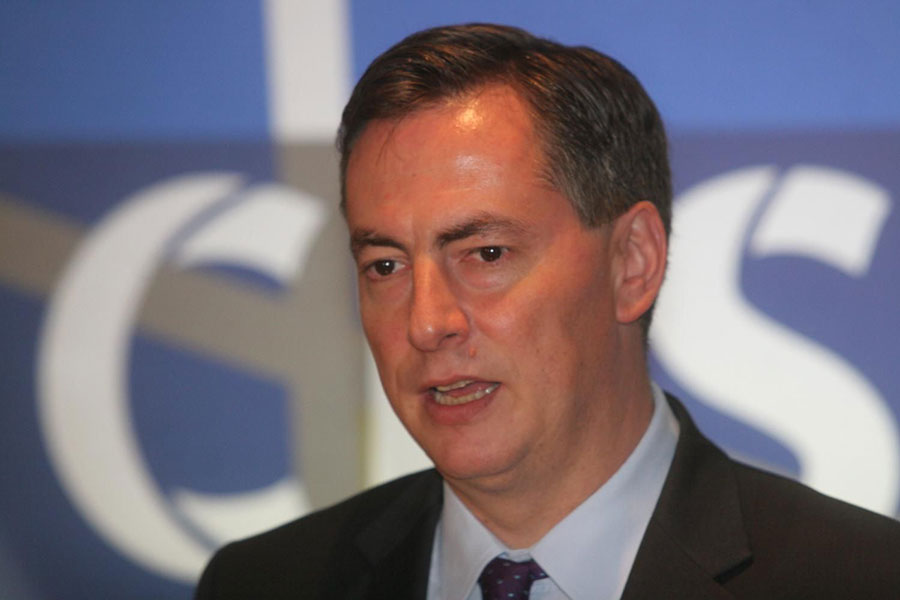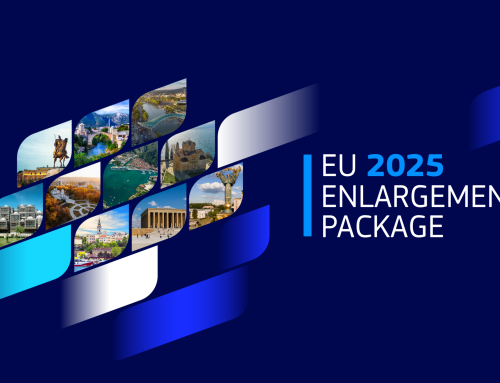European Parliament Rapporteur for Serbia David McAllister said today in Belgrade that Serbia, being an EU candidate country had to progressively align its foreign and security policy with the EU and apply restrictive measures where necessary.
Speaking at the conference “The European Union’s Global Strategy on Foreign and Security Policy and the Western Balkans,” McAllister reminded of the Resolution in which the EP urged Serbia to progressively align its foreign policy with the EU, including its relations with Russia, adding that the EP noted with regret the Serbian-Russian military exercises.
“That way, the EP tried to signal to Serbia that continuing a dual approach to Russia could not be tolerated over the long term because Russia’s aggressiveness cannot be tolerated,” McAllister said but added that he was taking into account Serbia’s traditionally strong ties with Russia.
He also said Serbia had conducted ten times as many joint military exercises with the Western allies than it had with Russia, but not everyone in Brussels was aware of that.
McAllister believes that in order for Serbia to reduce energy dependency on Russia, it should deal with the Energy Community project more..
“Jean-Claude Juncker and I have noted repeatedly that all six Western Balkan countries must be involved in all strategic energy projects,” McAllister added.
McAllister said Serbia had made significant progress on its EU path, adding that opening of chapters 23 and 24 scheduled for next week was “well deserved and overdue.”
“Not only do the Western Balkan countries have European prospects – they also have a European future,” McAllister said, adding he was hopeful to see further chapters opened during the Slovak presidency of the EU Council.
McAllister welcomed Serbia’s continued participation in EU’s civil and military missions and its contribution to common goals, adding that Serbia’s commitment to both EU and UN missions was impressive.
“You are committed to and invested in good cooperation with NATO,” McAllister said and added that Serbia-NATO relations were beneficial for Serbia, the Alliance and the region.
Also, he said that a membership in NATO was not a prerequisite to the EU membership.
Speaking about the possible consequences of Brexit, McAllister said the outcome of the UK referendum was “a terrible mistake” which regardless had to be accepted, adding that for the first time the enlargement process became reversible thus making the prediction of what would happen next impossible.
McAllister said the EU and the UK should establish good neighbourly relations and “not be mean to one another,” but added that if Britain wanted to remain a part of the single market, it would have to accept EU rules and incorporate all freedoms and make financial contribution to EU institutions.
The outcome of the referendum, McAllister said, should not affect enlargement efforts and our support to the reform efforts in EU candidate countries.
“The EU is facing great uncertainties and challenges, but the commitment to the enlargement policy should be strengthening, rather than weakening,” he said, noting that the enlargement policy has been successful and that it has contributed to promoting prosperity and security across Europe.
“Keep up your good work, take a long path to the EU. It is not going to be easy, but there are many people who support you. I am convinced that, when the time is right, you will align your foreign and security policy with the EU,” McAllister said.
At the press conference, McAllister noted some of the external and internal challenges of the EU such as Russia’s actions in Ukraine, Middle East, terrorism and Brexit, but stressed that the Union remains committed to enlargement, especially when it comes to the six Western Balkans countries.
There is no stability in Europe without stability in the Balkans, said McAllister and commended Serbia for pursing the policy of reconciliation and good neighbourly relations.
Speaking about Kosovo, McAllister said five EU Member States did not recognise Kosovo, adding that Belgrade-Pristina relations were not about recognising Kosovo, but normalising relations.
He added he expected to see progress in the implementation of agreements on both sides, including those in the field of energy, telecommunications, Mitrovica bridge and Association of Serb Municipalities.
As an example of good relations between Serbia and Germany, German MEP mentioned the wedding of Serbian tennis player Ana Ivanovic and German football player Bastian Schweinsteiger.




